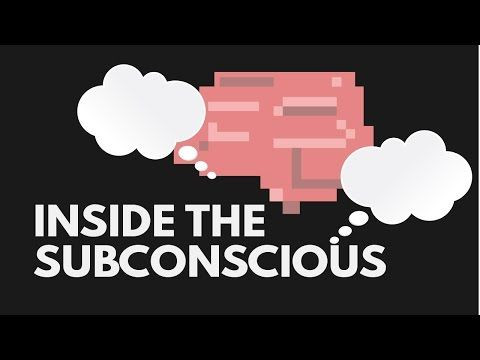The Human Brain: Your Subconscious Mind Processes Habits To Feel Like 'Second Nature'

We feel that we’re in control when we do daily activities like waking up, driving to and from work, and going to sleep. These routine habits feel like second nature because we process information very quickly without us being aware — this is known as the subconscious, more commonly known as the unconscious mind at work. In the Life Noggin' video, “How Does Your Subconscious Work?” host Patrick Graziosi explains the unconscious mind is able to influence our behavior and even contains suppressed memories that are too painful or tedious for a person to confront.
Sigmund Freud, the father of modern psychology, believed the unconscious mind does most of the work of our daily activities without us even realizing it. While we are fully aware of what is going on in the conscious mind, we have no idea what information is stored in the unconscious mind. Freud thought dreams and slips of the tongue, dubbed “Freudian slips,” could be analyzed and reveal some of the suppressed memories our conscious has been hiding.
The unconscious mind does affect how we behave. A 2008 study published in the journal Science asked some students to briefly hold either a hot or cold beverage and afterward describe the personality of a fictional character based off of some facts on a sheet of paper. The students who held the cold beverage described the fictional character as being much colder and selfish than their counterparts.
This is known as priming. In psychology, this means some of the particular goals or motives are activated in response to certain stimulus. For example, we are more likely to be competitive if there’s a briefcase in sight, and we tend to drive faster than normal if we read about a cheetah.
Our subconscious is not only able to control our behavior, it is also smarter than we think. According to a 2012 study published in the journal Proceedings of the National Academy of Sciences, people can process short sentences and solve equations before they’re aware of the words and numbers in front of their eyes. A group of participants were shown flash images with 9-4-3 flashed afterward. One of two numbers was shown to the participants and they had to read it out loud. The students were quicker to read aloud a number that was the right answer to the equation they had just subconsciously seen. For example, after being exposed to "9-3-4," they were quicker to pronounce "2" than "3."
These studies suggest the unconscious can influence how we act and even do our math. It is a lot smarter than the conscious mind is willing to give it credit for.
Source: Lupyan G and Ward EJ. Language can boost otherwise unseen objects into visual awareness. Proceedings of the National Academy of Sciences. 2015.
Published by Medicaldaily.com



























